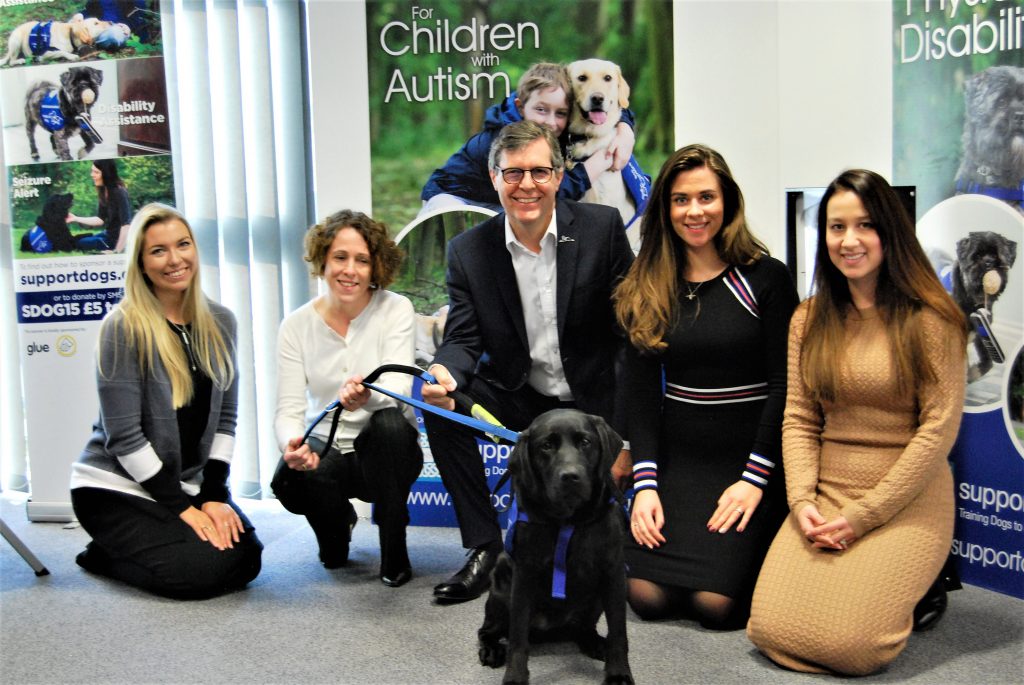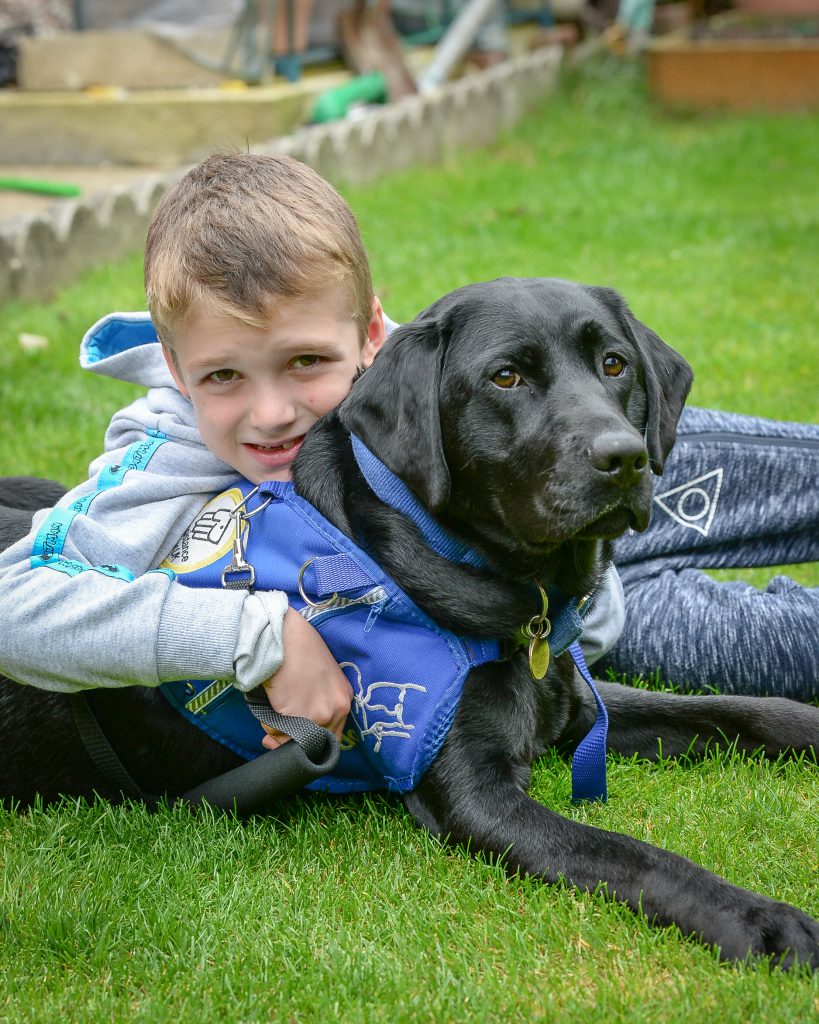Safety, independence and wellbeing of people living with epilepsy, autism or disabilities enhanced as another corporate partner backs national charity Support Dogs

A family living with epilepsy, autism or physical disabilities will have its spirits lifted as a new puppy will soon enter the Support Dogs training academy sponsored by diagnostic imaging experts Canon Medical Systems UK under its #madeforlife philosophy. For the next two years a puppy will be readied in life-saving and independence inspiring skills before being matched with an owner to provide a lifetime of assistance.
Trained assistance dogs provide important health and wellbeing support to people that need an extra hand. For example, they can pre-empt an epileptic seizure up to 50 minutes in advance, lower stress levels so that medication can be removed, and generally improve wellbeing to reduce the frequency of health appointments required. This not only improves the quality of life for the individual and their family, but also for the wider health economy that is prescribing drugs or struggling to keep up with NHS health appointment demands.
“Assistance dogs change lives. They breathe life and energy back into families that have been struggling to cope with everyday tasks or events.”
As we are solely funded by donations, partnerships with companies such as Canon Medical Systems UK are critical to ensure the flow of new puppies into our training scheme and enable more people across the UK to access the caring canine companion they need.”
Danny Anderson, Fundraising Manager at Support Dogs
The Support Dogs charity specialises in three specific programmes:
Autism assistance dogs for children aged three to ten years. Autism is a lifelong, developmental disability that affects how a person communicates with and relates to other people, and how they experience the world around them. The dogs are trained to provide safety for the child and reduce stress in social environments.
Seizure alert dogs for people with epilepsy. Around 1,000 people with epilepsy die each year and research suggests that most of these deaths are sudden and unexpected. The warning provided by a seizure alert dog means that a person can remove themselves from any danger and have a seizure in a safe environment.
Disability assistance dogs for people with physical disabilities. The person’s own pet dog is trained to perform tasks which are specifically tailored to their individual needs such as opening / closing doors, picking up objects or dressing / undressing. This provides them with a companion to enhance greater independence and safety.
“Since having Willow we’ve had a massive lifestyle change. The doctors wanted to put Sam on medication for his anxiety, but Willow has reduced his anxiety to such an extent that we can work on it with him without medication. Now, he will actually ask to go to the shops or to the woods. Willow has given him confidence and makes him feel safe.”
Emma Mills, Sam’s mother
Mark Hitchman, Managing Director of Canon Medical Systems UK, states, “For people living with constant anxiety, isolation or illness, a support dog brings so much positive change to their everyday lives. As part of our company 2020 vision we feel that it isn’t just our role to supply diagnostic imaging systems to the NHS and independent hospitals, but that we have a moral obligation to promote good health and wellbeing beyond pure financial gains. Sponsoring a puppy through its 2-year specialist training will make such a difference to a family. This is one aspect of our 2019 #madeforlife campaign where we are focusing on respecting the health of our nation and our world.”

1. Mark Hitchman, Managing Director of Canon Medical Systems (centre) with other members of the Canon Medical Systems UK team meet Willow, an autism assistance dog specially trained by Support Dogs.
2. Everyday life for Sam with his black Labrador support dog ‘Willow’ has got easier lowering his feelings of anxiety and has enabled him to avoid medication for autism. [Photo credit: A Dog Life Photography]